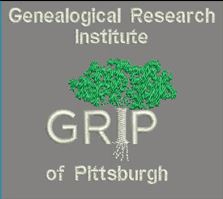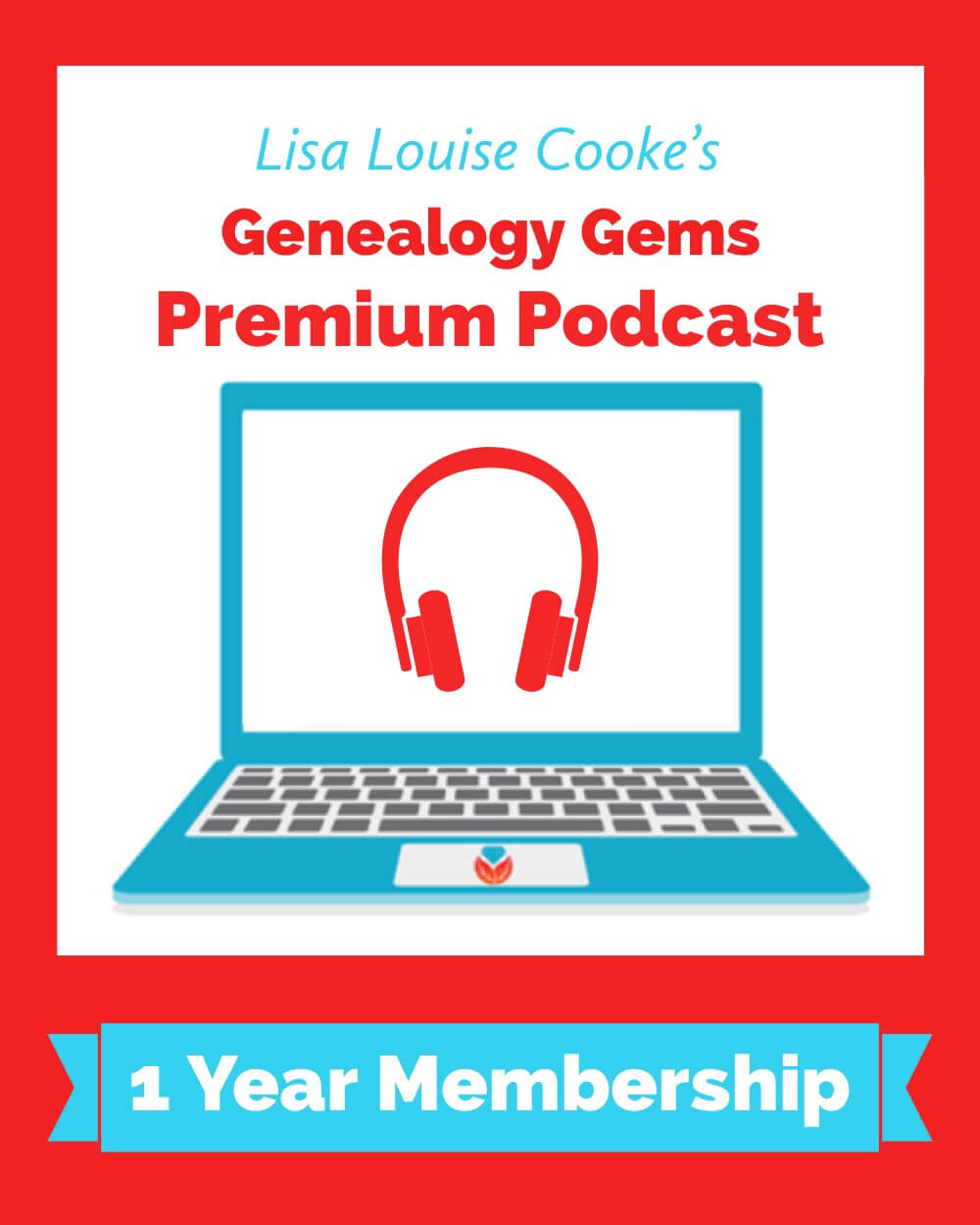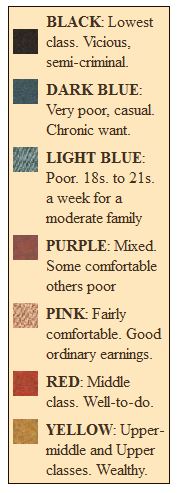by Lisa Cooke | Jul 30, 2013 | 01 What's New, History, Inspiration, Who Do You Think You Are?

Genealogy Roadshow logo
Lovers of Who Do You Think You Are! and other genealogy TV favorites will be pleased to know that Genealogy Roadshow is filming for airing this fall on PBS.
This clever show follows a format similar to the popular Antiques Roadshow, in which antiques experts travel to various cities to talk about artifacts brought in by area residents. Residents may lug in tall grandfather clocks, faded letters or other old objects. Experts comment on the historical context, rarity and value of their artifacts. Viewers enjoy watching owners who become overjoyed, stunned, fascinated and occasionally disappointed by what the experts say.
Genealogy Roadshow spins that format in a family history direction. PBS describes it this way: “Participants want to explore unverified genealogical claims passed down through family history, that may (or may not) connect them to an event or a historical figure. Experts in genealogy, history and DNA will use family heirlooms, letters, pictures, historical documents and other clues to hunt down more information. These experts will enlist the help of local historians to add color and context to the investigations, ensuring every artifact and every name becomes a clue in solving the mystery.”
This season, hosts are Kenyatta Barry and D. Joshua Taylor, young but expert and enthusiastic voices in the American genealogy community. The cities hosting Genealogy Roadshow are Nashville, Austin, Detroit and San Francisco. PBS explains that “these cities were chosen as American crossroads of culture, diversity, industry and history, with deep pools of potential participants and stories.”
This has already been a popular series in Ireland, where Genealogy Roadshow is in its second season. The series premieres in the U.S. on KQED on Monday September 23.
by Lisa Cooke | Jul 29, 2013 | 01 What's New, Conferences, DNA, Inspiration, NARA
 Hello from Genealogy Gems Contributing Editor Sunny McClellan Morton. I’m still flying high after a week just spent at GRIP, the Genealogical Research Institute of Pittsburgh. This was like mini-graduate school for genealogists, complete with a lush green campus in the rolling hills of Pennsylvania; immediate access to legendary instructors; rigorous coursework that’s exactly what I want to learn; a great genealogy bookstore; and plenty of after-hours socializing.
Hello from Genealogy Gems Contributing Editor Sunny McClellan Morton. I’m still flying high after a week just spent at GRIP, the Genealogical Research Institute of Pittsburgh. This was like mini-graduate school for genealogists, complete with a lush green campus in the rolling hills of Pennsylvania; immediate access to legendary instructors; rigorous coursework that’s exactly what I want to learn; a great genealogy bookstore; and plenty of after-hours socializing.
While I was there, GRIP announced an exciting lineup for 2014 (it’s not even on their website yet). Here are the topics and instructors:
- Finding and Documenting African-American Families with J. Mark Lowe, CG, and Deborah Abbott, PhD.
- Practical Genetic Genealogy with Debbie Parker Wayne, CG, CGL, CeCe Moore and Blaine Bettinger, PhD, JD.
- Law School for Genealogists with Judy G. Russell, JD, CG, CGL and Richard G. “Rick” Sayre, CG, CGL.
- Becoming an Online Expert: Mastering Search Engines and Digital Archives with D. Joshua Taylor, MA, MLS.
- Determining Kinship Reliably with the Genealogical Proof Standard with Thomas W. Jones, PhD.
- Intermediate Genealogy: Tools for Digging Deeper with Paula Stuart-Warren, CG, FMGS, FUGA.
All those initials after these instructors’ names means tons of expertise is poured into every GRIP experience, and if you know any of these folks you know there’s not a “boring professor” among them!
If you’re ready for seriously advanced genealogy education, check out GRIP or other learning experiences like it. In the United States, I know about SLIG in Salt Lake City, IGHR at Samford University in Birmingham, and NIGR at the National Archives. There are also more flexible (but still demanding) options like ProGen Study Groups, Boston University’s Genealogical Research Programs and the National Genealogical Society’s American Genealogy Home Study course.
Don’t forget to check out programs and conferences offered by your own state, regional and local genealogical societies. They usually offer a variety of topics for beginners to more advanced students–and they’ll be closer to home and less expensive. Our own Genealogy Gems premium memberships offers a fabulous genealogy education for a fabulous price: in addition to premium podcast episodes, you also get a new, full-length video tutorial every MONTH to watch whenever you like, along with unlimited access to all previous full-length video tutorials. Check out our list of Premium Videos here.
by Lisa Cooke | Jul 27, 2013 | 01 What's New, Findmypast, Research Skills
 If you’ve ever used the Periodical Source Index (PERSI), you know what a genealogy gem it is. PERSI is a master index to thousands of genealogical and historical periodicals, published by the Allen County Public Library’s Genealogy Center (ACPL). According to the Journal Gazette, PERSI contains about 2.5 million citation and adds another 100,000 a year. This is where you go to see if someone’s written about your family or ancestral hometown in state, regional, ethnic, local and other journals and newsletters.
If you’ve ever used the Periodical Source Index (PERSI), you know what a genealogy gem it is. PERSI is a master index to thousands of genealogical and historical periodicals, published by the Allen County Public Library’s Genealogy Center (ACPL). According to the Journal Gazette, PERSI contains about 2.5 million citation and adds another 100,000 a year. This is where you go to see if someone’s written about your family or ancestral hometown in state, regional, ethnic, local and other journals and newsletters.
You can currently search PERSI through the HeritageQuest Online databases at your local library and with your Ancestry.com membership. But the trick is accessing those articles once you find them. The best way right now is to order them directly from ACPL (click on Article Fulfillment Form). It costs $7.50 USD to order up to 6 articles at a time, plus $.20 per page and you get the articles in the mail.
Now findmypast.com has big plans to make PERSI easier to use. Findmypast.com is becoming the new online host of PERSI, and they plan to link digital images of as many articles as possible to the index. “PERSI unearths hidden gems for genealogy researchers,” says D. Joshua Taylor, lead genealogist for findmypast.com. “We look forward to working with various societies and publications to get permission to digitize their articles.”
That sounds like an enormous undertaking, but certainly one that’s long overdue and will pay off for family history researchers. I’ll keep you posted on their progress!
by Lisa Cooke | Jul 25, 2013 | 01 What's New, iPad, Technology, Who Do You Think You Are?
 Would you like to be privy to the genealogical research strategies of the producers of the TV series Who Do You Think You Are? Genealogy Gems Premium Members get an exclusive cut from my recent interview with Allie Orton, Producer of the series that has moved to the TLC channel. Allie and her team work under a tight timetable and budget, and she provides tips to help you do the same.
Would you like to be privy to the genealogical research strategies of the producers of the TV series Who Do You Think You Are? Genealogy Gems Premium Members get an exclusive cut from my recent interview with Allie Orton, Producer of the series that has moved to the TLC channel. Allie and her team work under a tight timetable and budget, and she provides tips to help you do the same.
Also in this episode I’ve got not one but two new cool tricks to pump up your iPad / iPhone for genealogy! And we’ll also tackle a question about digital file organization that will help you get more organized.
All of these gems are part of a very special Premium episode: #100! And as a Premium Member you have access to all 100 in the podcast catalogue!

Not a Genealogy Gems Premium Member? Why not? Become a Member today and get immediate access to all of the genealogy goodness in both audio and video!
P.S. The remainder of the interview is coming to the next episode of the Genealogy Gems Podcast in early August. Stay tuned!
by Lisa Cooke | Jul 21, 2013 | 01 What's New, British, Maps

Booth Poverty Maps key
There is a fantastic blog posting on Mad About Genealogy about the Booth Poverty Maps, which look like a riveting way to understand your ancestor’s 1880s London neighborhood.
According to blogger Linda Elliott, “Booth employed a team of social investigators who walked around the London streets often in the company of the local policeman and recorded what they saw and heard. The notebooks that they filled out can be viewed online and make for fascinating reading with amongst other findings they record what the policeman thought of each street and sometime each building and its inhabitants.”
I’ve shown the map key here (right), clipped from The Charles Booth Online Archive. Linda describes each category in greater detail in her blog post, along with everything a genealogist needs to know to use the maps.






